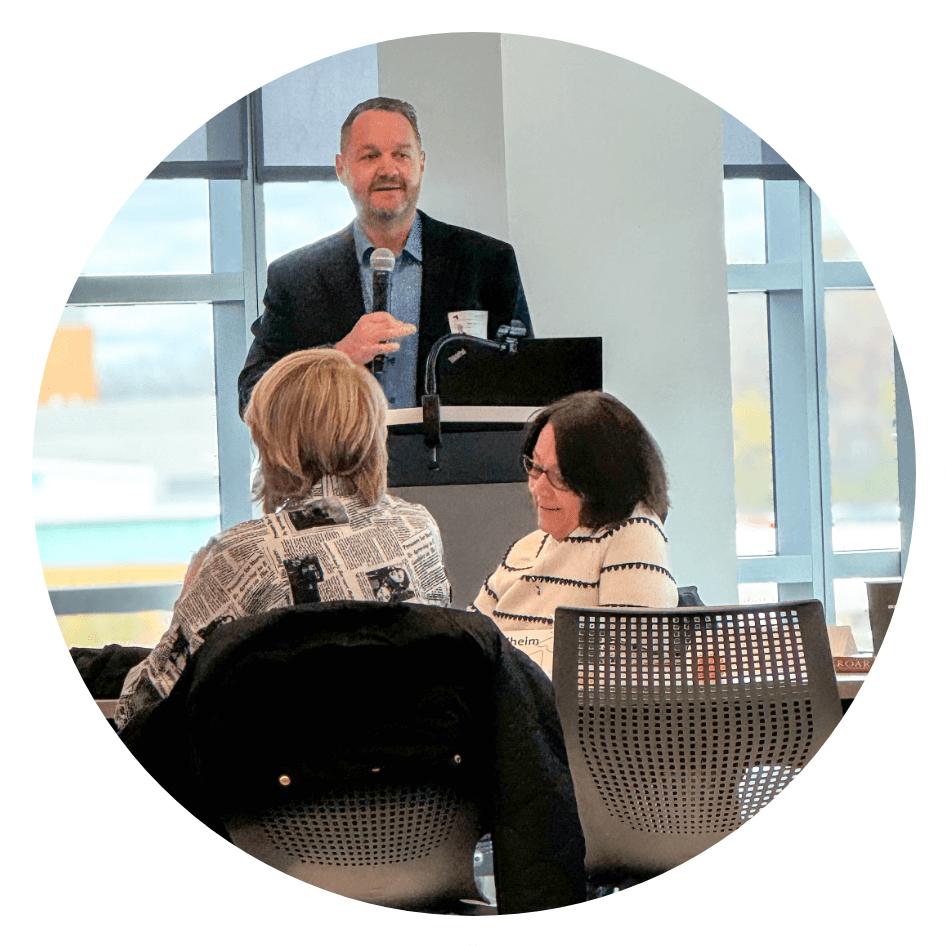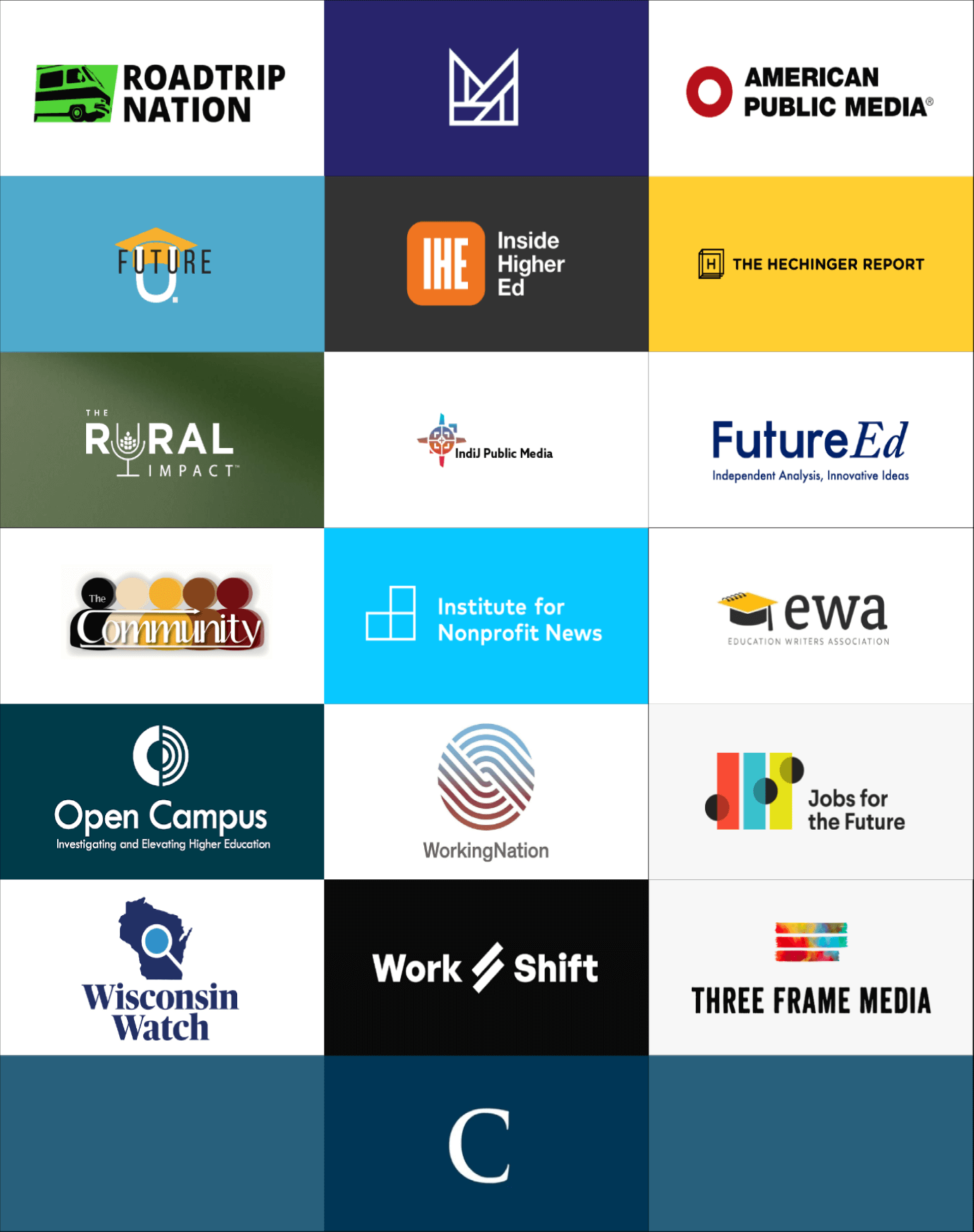Partnering to Create
Change through Solutions-
Focused Media
High-quality reporting and storytelling can shape attitudes and policies affecting learners from low-income backgrounds — both now and for generations to come. Media like news stories, podcasts, documentaries, and photo essays can reach key institutions, networks, learners, and changemakers where they are. As solutions-focused media outline the challenges facing learners today, they also disseminate promising and effective approaches for improving educational outcomes at scale. These productive, learner-centered conversations can build urgency for reform.
The work our media partners do is critical for creating conditions for change. Our growing partnerships with media organizations in 2024 reflect our continued commitment to the vital role they play in advancing the systemic change at the heart of our mission.

Paul Fain, co-founder of Work Shift and editor of The Job, speaks about the importance of reporting on the connections between education and work. Work Shift was one of our 19 media partners in 2024.


Our growing partnerships in 2024 reflect our continued commitment to high-quality reporting and storytelling as a critical lever in our grantmaking.
-
We established a base of partners producing reporting on postsecondary education and workforce training issues. Through these partnerships, we built the capacity for reporting on critical issues so that the future holds more learner-centered, solutions-focused media stories.
The Hechinger Report, Open Campus, Work Shift, and WorkingNation are examples of partners who are framing complex issues across our strategic priorities to advance knowledge for a diverse readership.
-
We complemented this emphasis on news reporting with support for partners developing narrative-driven projects that have specific target audiences in mind and span media types. The work of these partners highlights local stories and experiences to help inform and build an understanding of issues on a national scale.
Three Frame Media’s “Raising Up” film series on student parents, The Rural Impact podcast, and Inside Higher Ed’s deep dive on the 40 million learners with some college but no degree are examples of project-based partnerships lifting up the voices and experiences of learners from low-income backgrounds.
As we look toward the future of postsecondary education and workforce training, we know that media partnerships will continue to play a key role in our strategy. They elevate the experiences of learners, help build urgency for change, and inform those positioned to make change about promising solutions.

 Related Stories
Related Stories
